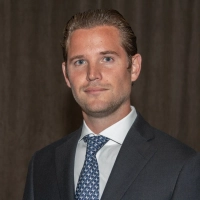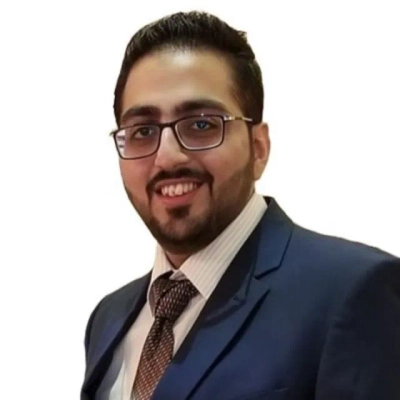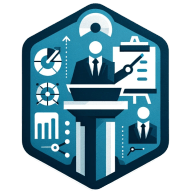10 Tips for Learning New Skills Outside Your Comfort Zone
Embarking on the journey of learning new skills can often lead individuals into uncharted territories. This article demystifies the process with practical tips backed by industry experts, aimed at enhancing skill acquisition beyond familiar grounds. Gain invaluable knowledge through expert insights that pave the way for growth and mastery in any field.
- Teach Others to Reinforce Your Understanding
- Embrace Active Mentorship and Experiential Learning
- Integrate New Knowledge Through Real-World Projects
- Adopt a Gradual, Steady Learning Approach
- Chart Growth Opportunities and Take Action
- Engage in Structured Learning and Networking
- Practice Silence to Enhance Focus
- Enroll in Immersive Courses with Hands-On Projects
- Execute Real-World Campaigns to Master Skills
- Perfect Techniques Through Expert-Guided Practice
Teach Others to Reinforce Your Understanding
At Write Right, I'm always encouraging myself and my team to step outside our comfort zones and learn something new. One method that's worked really well for me is the "learning by teaching" approach. When I'm learning something new, I break it down and explain it to someone else, whether it's through a team discussion or a blog post. This forces me to fully understand the topic because I have to simplify it for others.
It's effective because teaching others reinforces your own understanding, and it helps you see the topic from different perspectives. Plus, it's incredibly satisfying to help others grow while growing yourself. This method has helped me build new skills and stay confident, even when stepping into areas I'm not entirely familiar with.
Embrace Active Mentorship and Experiential Learning
I see learning new skills and knowledge as just that, a process and experience, like recovery itself, consistent effort, humility, and receptiveness to learning when necessary. I am constantly forced to adapt to stay competitive in my field, and I think the best way to do that is with curiosity and an openness to the opinions of all sorts of individuals.
Active mentorship is one of the methods that I use. I learn so much by having the people surrounding me who have varying experiences and insights, be it peers from the recovery field or leaders in other industries. I have interesting discussions about this over and over again, and it challenges me every time and teaches me about strategies or tools I didn't think of.
I also am a big believer in experiential learning. For me, that means practical engagement with new frameworks, experimenting with them, and then iterating based on feedback. Whether it's using new clinical approaches or adding innovative ways to support my team, I learn through action and review progress in real time.
As far as resources, I think professional development workshops, conferences, and online courses have been really effective for me. This way it gives you a way to learn in an organized manner and also gives you a chance to meet like-minded people. I gravitate toward workshops that discuss leadership development, as well as innovation in the field of addiction recovery, because they help shape the concept of what we need as an industry while reinforcing principles we value at Synergy.
Lastly, I am intentional about reading broadly, not simply industry-specific materials, but books/articles in psychology, business and self-development. This sort of cross-pollination tends to inspire new ideas that I can repurpose into my own work.
Staying relevant isn't about knowing it all, it's about wanting to change. By remaining curious, sourcing input and honing my skills, I can guarantee that I'm bringing my best self to Synergy and the populations we support. My advice? Learn constantly, and assume the next great idea will come from the most unlikely source.
Integrate New Knowledge Through Real-World Projects
To stay competitive in my field, I take a hands-on, project-based approach to learning. Rather than just consuming information, I actively engage with it by integrating new knowledge into real-world initiatives. For instance, when I come across emerging research in behavioral health or healthcare technology, I'll pilot small-scale projects within my organization to see how these innovations can enhance patient outcomes. This allows me to learn by doing and ensures the knowledge I acquire has immediate, practical value.
I also lean heavily into interdisciplinary learning. I believe some of the best ideas come from outside the healthcare field, so I explore industries like technology, design thinking, and business strategy for insights that can be adapted to healthcare. For example, studying customer experience principles from the tech sector has helped me refine patient care models to be more responsive and intuitive.
Additionally, I maintain a "learning journal." Every week, I jot down insights from books, articles, or conversations and then challenge myself to identify three ways these ideas can influence my work. This reflective process not only helps solidify what I've learned but also ensures I'm constantly connecting knowledge to actionable improvements.
I've also found peer collaboration to be a game-changer. I participate in mastermind groups and professional roundtables where leaders from various disciplines come together to share experiences and challenges. These discussions provide a wealth of knowledge that's both practical and diverse, often sparking ideas I wouldn't have encountered otherwise.
I prioritize emotional intelligence as part of my learning journey. Staying competitive isn't just about hard skills, it's about staying connected to people. I invest time in understanding team dynamics, patient experiences, and the human elements of leadership. This has helped me foster stronger relationships, build trust, and lead more effectively, which, in turn, drives success across the board.
This multi-dimensional approach, anchored in action, reflection, and collaboration has been instrumental in keeping me not just competitive but also deeply fulfilled in my work.

Adopt a Gradual, Steady Learning Approach
To learn something new outside of my usual scope, I take a slow and steady approach, avoiding stress or overwhelming challenges that might cause me to lose interest. As I improve, I gradually increase the intensity to build my skill.
Start with about 30 minutes daily and gradually extend the time to 1 hour, allowing your brain to adjust at a manageable pace. This approach helps build confidence over time, enabling you to challenge yourself further.
Chart Growth Opportunities and Take Action
Similarly to learning very new skills and knowledge bases to maintain a competitive edge in my field, I do this with intent and a learning and growth mindset. Whether humans like it or not, they need to keep learning continuously, as industries change and new things come into practice. Behavioral health is no exception in this case, where new evidence-based practices and trends get developed frequently.
I begin by determining the specific areas in which I have growth opportunities, whether in clinical strategies, leadership methods, or technology advancements. This typically means thinking through a challenge that I've encountered or constructive feedback I've received, and how I can align those learnings with my long-term vision for where I'd like to grow personally and professionally. Once I've got clarity across the board, I chart actionable steps to leverage these areas.
Professional networking is one of the best resources I rely on. Conferences, workshops, and industry events help me connect with experts and peers, share ideas, and stay informed about best practices. I also make an effort to read books, research articles, and case studies that challenge my perspectives or advance my knowledge of salient topics because thought leadership is also about reading.
Moreover, I believe in technology as a means of accessing knowledge. To date, online courses, webinars, and podcasts have helped me a lot to learn new things in a comparatively quicker and easier manner. Separate educational platforms, such as Coursera or LinkedIn Learning, or even specialized certification programs within my industry allow me to gain a deeper understanding of specific topics in my own time. As a result, I also use self-education apps and tools so I can build skills in a way that fits my daily life.
Mentorship has also been a critical aspect of my learning journey. We don't just learn the ropes from mentors who have trodden the same path as us but also great lessons on how to overcome hurdles along the way. I also pay it forward to others whom I mentor; if they are true to their art, teaching always cements the knowledge I have and sharpens my skills.
The key thing in this process is that I am applying what I learn right away. Applied experience turns "know-how" into "do-how." So by striving for more and remaining flexible, I help ensure that I'm not just following the field but playing a part in shaping it.
Engage in Structured Learning and Networking
When it comes to learning new skills and expanding my knowledge base, I am someone who possesses intentional curiosity and an ongoing desire to grow. Keeping up in any field is not enough, it's being ahead of the curve, it's accepting the cutting edge, it's pushing the envelope. My practice of this starts with being aware of what I need to sharpen or where the industry is changing and looking for opportunities/learning material that checks those boxes.
One of the most powerful steps I take is to engage in structured learning, which comes in the form of courses, certifications and domain-specific train the trainer sessions. Learning platforms often offer this type of content tailored to allow me to explore and deep-dive into emerging topics while working at my own pace. If you are someone who adapts to the new, for instance, the new technology or a new methodology that are emerging in my industry, I will ensure that I take a course or attend a workshop to learn the fundamentals and the practical aspects.
Networking is another key aspect of my learning process. I network with peers, mentors, and thought leaders in my field through academic conferences, webinars, and professional organizations. These interactions can give you insights you wouldn't get from books or courses, like real-world applications and best practices, or even what not to do. Second, I also enjoy being involved in roundtables, or panel-like discussions where different perspectives stimulate new ideas.
Reading is another pillar of my approach. I prefer a combination of industry reports, thought leadership articles and books to think outside the box. And so, I stay on top of macroeconomic developments and innovations in adjacent fields and examples of firm strategies that perform well in other industries to get ahead of the curve and apply a bigger picture view to my work.
Lastly, I think that you learn by doing. If you have the opportunity to take on stretch assignments or side projects that push you out of your comfort zone, embrace them and put new knowledge into practice to hone skills in real-time. So if, say, I want to learn a new software tool or business strategy, I will weave it into a project that has real, immediate stakes, which fast-tracks competence and confidence.

Practice Silence to Enhance Focus
Here's your refined response in 2-3 paragraphs:
---
One of the most effective ways I approach learning new skills, especially outside of my comfort zone, is by practicing silence. It may seem counterintuitive, but taking a moment to be completely still and silent creates the mental space needed for deeper learning. In a world filled with constant noise and distractions, intentional silence helps calm the central nervous system, enhances focus, and allows new information to settle. Scientific research even supports the benefits of silence, linking it to improved concentration, reduced stress, and even brain growth stimulation.
To integrate silence into learning, I start by giving myself permission to be still for just 30-60 seconds. I find a quiet space, silence distractions, and clear my mind of any intrusive thoughts--sometimes by writing them down beforehand. This brief pause before diving into new material helps me feel centered, open, and more receptive to challenges that push me beyond my comfort zone. Over time, this practice has strengthened my ability to adapt, absorb new information, and approach learning with a calm, focused mindset.

Enroll in Immersive Courses with Hands-On Projects
To acquire new skills outside one's comfort zone, a structured approach is key. Immersive learning experiences, such as workshops or online courses, can enhance knowledge and provide networking opportunities. For instance, a professional seeking to improve data analysis skills may enroll in a specialized course that combines theory with hands-on projects using real datasets. This method effectively builds expertise relevant to industry demands.

Execute Real-World Campaigns to Master Skills
Expanding your skills is essential in the fast-evolving digital marketing landscape. I practice immersive experiential learning, which involves learning through hands-on experiences and reflecting on them. This method includes executing real-world campaigns that push you to use unfamiliar platforms and strategies, enhancing understanding and engagement with complex concepts.

Perfect Techniques Through Expert-Guided Practice
At Lumiere Dental Spa, stepping outside my comfort zone has always meant hands-on learning. When mastering advanced cosmetic techniques, I didn't just study them—I practiced alongside top experts to perfect every detail. It transforms patient care. Many arrive anxious or unsure about cosmetic treatments, but through personalized planning and a spa-like experience, we make every visit comfortable and empowering. One patient, Sarah, hesitated about veneers, fearing an unnatural look. With digital previews and custom design, she left with a confident, radiant smile that felt entirely her own. Expert care tailored to your needs—whether a subtle enhancement or full restoration. If you've been waiting to love your smile, we're here to make it happen, beautifully and comfortably.






